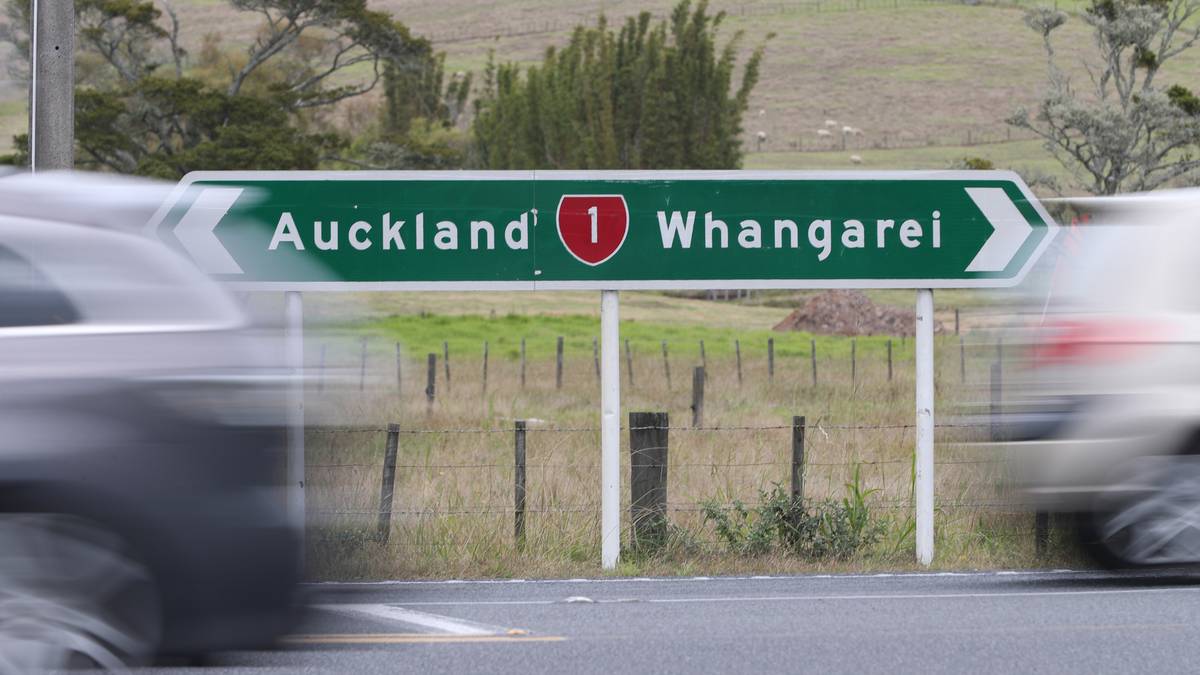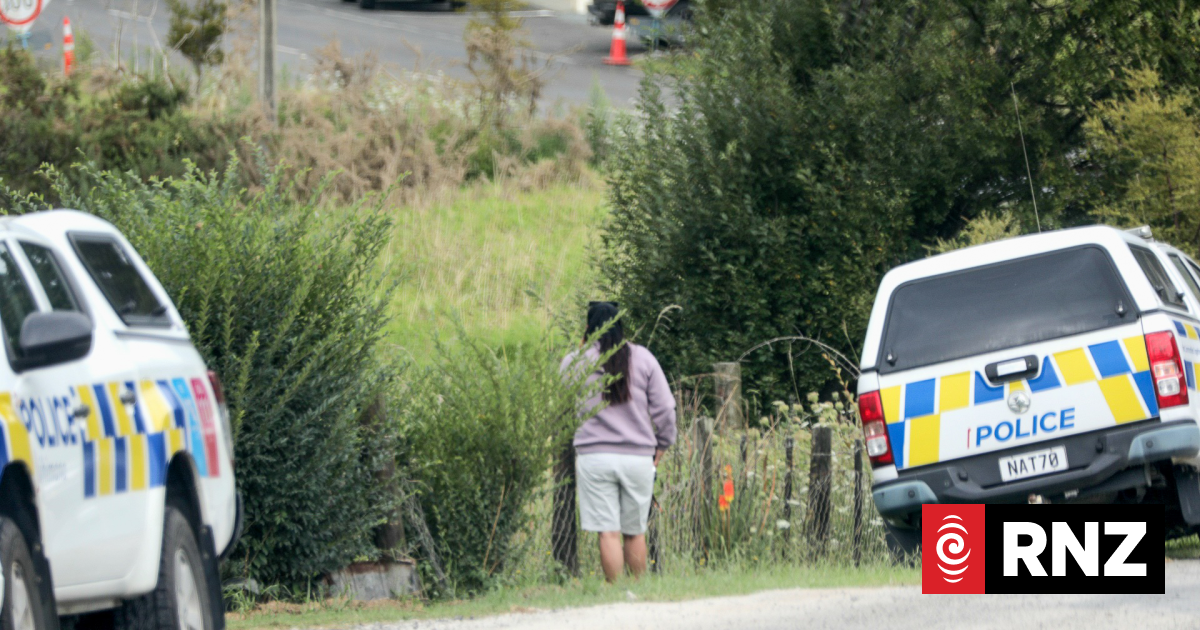Many motorists have sought compensation for damage to their cars caused by potholes and loose stone chips while driving Northland’s notorious state highways. Photo / Michael Cunningham
Pleas for compensation by cash-strapped motorists suffering vehicle damage sustained on Northland’s state highways have been declined by the Government’s roading agency.
Over the last several years, more than 120 motorists have sought payment for
damages from Waka Kotahi NZ Transport Agency in an attempt to claw back thousands of dollars spent fixing their vehicles and forking out for insurance excess and towing costs.
Compensation requests obtained by The Northern Advocate under the Official Information Act show Northland’s abysmal roads have caused some serious damage including busted wheel rims and flat tyres from driving over gnarly potholes, and damaged paintwork and cracked windscreens caused by loose stone chips at roadwork sites.
Hitting a pothole on SH1 was distressing for one parent whose wheel was totally wrecked.
“I have a young baby at home and the lack of income from Covid, these costs are causing my family extreme financial difficulty at this time.”
Another whose windshield was hit by two large pieces of metal twice on SH10 on the way to Kerikeri said they “can’t afford to change my windshield every year”.
“I’m beyond upset, and like the majority of people, we don’t have extra income for this.”
Forty-five people sought compensation for vehicle damage in 2018, followed by the same number in 2019.
In 2020, 32 people sought compensation, likely less due to Covid-19 lockdowns, taking the total to 122.
Waka Kotahi could not provide figures for 2021 or 2022.
/cloudfront-ap-southeast-2.images.arcpublishing.com/nzme/ML6LYXOGGDXZUWT3LABBYKBU6Q.jpg)
The agency did say however that there have not been any full and final settlement payments within the last three calendar years in the Northland region.
Waka Kotahi national manager maintenance and operations Neil Walker said Fulton Hogan is responsible for the maintenance and upkeep of sections of state highway on behalf of the transport agency.
“Other than in cases of negligence by Waka Kotahi or its contractors we are unable to provide compensation for damage caused to vehicles or property… none of the requests included in this data set met the threshold for compensation.”
The stranger requests for compensation included damage caused after “hitting cows” on New Zealand’s main state highway, and a street light that fell onto a bonnet while waiting to turn into the Bunnings parking lot in Whangārei.
But it was loose gravel and potholes that topped the list with numerous irate motorists complaining about cracked windscreens caused by stones flicking up at roadworks, even when driving at recommended slow speeds.
One motorist said their insurance company would no longer cover them for repair or replacement, while another sought compensation for the $500 excess needed to have their windscreen replaced.
Yet another asked who to invoice for three new windscreens over 14 months due to “stone chips being left all over the road from your roadwork contractors”.
“The issue is from Taipa all the way to Kaingaroa and it’s about time somebody accepted responsibility for it,” the person said.
/cloudfront-ap-southeast-2.images.arcpublishing.com/nzme/NUP52AHIAXC4IU2B33JTSINBAE.jpg)
Driving from Kerikeri and Auckland saw one family receive three stone chips, the fourth of which cracked the whole windscreen.
One complainant wrote that, though the roadworks had been finished and the temporary speed signs removed, the “road was left littered with stones”.
Several motorists questioned why contractors couldn’t sweep the sites once they were finished.
One asked: “Why are we using this system of resurfacing when it causes so much damage to both windscreens and paintwork?”
Another, who received five stone chips within two days, asked whether Waka Kotahi “has shares tied up in a windscreen repair business or is there a huge shortage in road sweeper machines?”
“These are the only two explanations I can think of for leaving a job in such a dangerous and culpable state.”
Potholes on Northland’s state highways caused major damage to suspension, tyres and wheels.
One motorist’s wheel rim was so buckled it had to be straightened or replaced, along with a wheel alignment costing $780.
/cloudfront-ap-southeast-2.images.arcpublishing.com/nzme/JBRZX2TT5M46TW2NNQLAUPZO4A.jpg)
Another hit a pothole at night and had no time to react or avoid it.
“When we pulled over to inspect our vehicle we joined another six vehicles doing the same. Northland SH1 roading is frankly in a shocking state.”
Another fed-up driver said SH10 was “a disgrace to our country”, adding “surely we can do better than this for both ourselves and our overseas visitors”.
Waka Kotahi spokeswoman Jacqui Hori-Hoult said after a new road seal is laid, sites are swept, removing excess loose chip. Any that is left “settles into the bitumen”, she said.
“Driving at a reduced speed helps the new seal to bed in and also prevents stone chips flying.”
Complaints that claim the road’s condition has caused damage to a vehicle are assessed on a case-by-case basis, Hori-Hoult said.
“Waka Kotahi and our contractors investigate to see if there are any exceptional circumstances we should be aware of, which may trigger further obligations.”
/cloudfront-ap-southeast-2.images.arcpublishing.com/nzme/QNFTW6ONZ2POO5MNZO24U5HAZM.jpg)
Mangonui motorist Richard Schofield sought $1709.25 compensation from Waka Kotahi in 2020 for car damage incurred on SH10 in the Far North.
He also filed proceedings with the Disputes Tribunal, blaming the poor state of Northland roads for damage to family cars.
Schofield was passed onto Fulton Hogan, who offered him $1000 if he signed a confidentiality agreement and dropped the disputes tribunal case.
Schofield rejected the offer and took the matter to the Disputes Tribunal, which was unsuccessful.
AA Communications, Safety and Research Manager Dylan Thomsen said there are laws that require road crews and local authorities to fix hazards promptly.
“Motorists rightly expect that roadworks and hazards are sufficiently signed and also that local authorities will act quickly to do this as soon as they become aware of a hazard,” Thomsen said.
“However, the actions of a road repair crew, and the local authority responsible, need to be balanced with the responsibility of road users to drive with care and to the conditions.”
Thomsen said there have been “some historic cases where negligence has been proven in New Zealand courts related to the way roadworks have been signed or the way a road repair crew has completed a job”.
“But in general, contractors and local authorities around the country are very aware of their responsibilities and do a good job advising motorists of hazards.”




